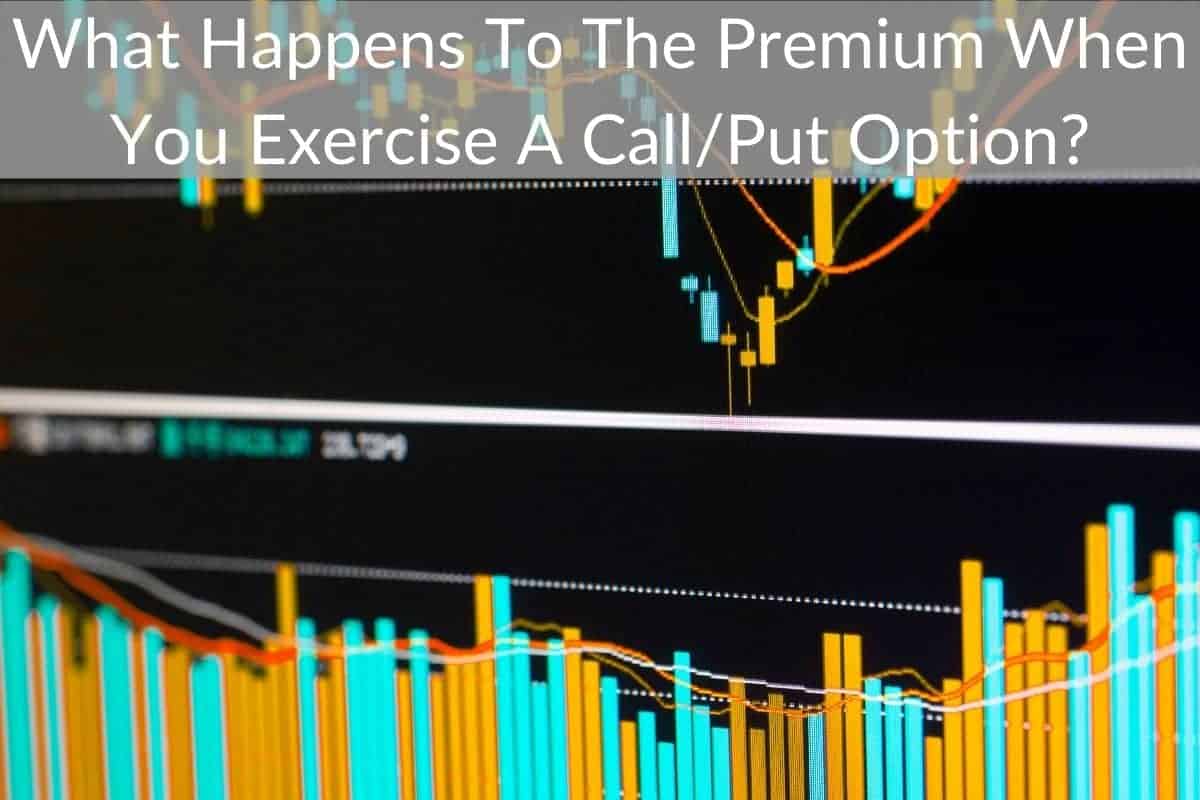Table of Contents
*This post may contain affiliate links. As an Amazon Associate we earn from qualifying purchases.
The option premium is the current price that an option contract sells for. The option allows you to buy or sell the underlying assets for a specified price during a set period, and the premium is what you pay for the right to do so.
The option premium is paid to the seller of the option so when you exercise the option nothing happens to it, it stays with the seller of the option.
The option premium is what you pay for the right to control a certain stock for a certain period of time and that doesn’t change whether you exercise the option or not.
The option premium stays with the seller of the option whether the option is exercised or not. Think of the premium like you paying for insurance. Whether you use the insurance or not the company still keeps your payment.
The same thing is true with option premiums. Whether you exercise the option or it expires worthless the premium still stays with the option seller no matter what.
In this article I will explain in more detail what an option premium is and exactly how it’s calculated.
How The Option Premium Is Calculated
The option premium is the price of an option contract, and thus it’s the amount that a seller of an option will receive from the buying party. Say you want to buy an option that gives you the right to buy 100 shares of a stock for a defined price within a specified period.
The amount you pay for that right is called the premium.
Here are the three main factors that influence the size of a premium:
- Price of the underlying asset
- Level of volatility
- How close the option is to expiring
- The strike price you choose
The premium is calculated by adding up the intrinsic value of the option with its time value. In simple notation:
Premium = intrinsic value + time value
An option’s intrinsic value is the difference between an option’s strike price versus the underlying asset price.
For example, if you have an option that lets you buy ABC stock for $10 when it’s currently trading for $15 on the market, the intrinsic value of that particular option would be $5.
To calculate the intrinsic value of a put option, subtract the underlying asset’s current price from the strike price:
Intrinsic value = strike price – current price
When it comes to the time value, it’s important to understand that options start losing their time value the closer they are to their expiration date. The reason for this is the longer an option has until it expires, the more likely it is to exercise it at a profit.
The volatility of the market also has an impact on the premium. Volatile markets are more likely to cause an increase or decrease in the strike price, which means that they often come with higher premiums.
How the Premium Is Affected When You Exercise an Option
When you buy options, you’re not obligated to exercise them. Instead, you can either sell them, let them expire, or exercise them. In fact, the majority of options are never exercised, and the ones that are usually are exercised close to the expiration date.
However, in some circumstances, exercising the option is the most logical thing to do.
When you exercise the option, you agree to either buy or sell the shares of the asset (usually 100 shares for stocks) depending on whether it’s a call or put option for the strike price.
In general, you should only exercise the option if the strike price is lower than the asset’s current market price for call options. On the other hand, you should exercise a put option if the strike price is higher than the current market price.
For example, if a put option’s strike price is $10, it makes sense to exercise the option and sell your shares if the market price is, say, $5.
Since the premium is simply the selling price of an options contract, it is irrelevant whether the person who holds the option decides to exercise it or not. The premium once paid is never returned to the option buyer.
The premium is essential when trying to purchase or sell an option contract since it will be the price you pay or get paid for it.
If you let the option expire, you’ll lose the entire premium that you paid when you bought the option. However, if the option expires in the money, most brokers will automatically exercise the contract or sell it and you’ll make a profit but you still won’t get the premium back from the seller.
The premium is paid once and never returned. If you sell the option in the future you might be able to recoup all that you paid for the option back (or you might not) but the option seller doesn’t have to return the premium.
Instead it’s another investor paying you for that option. The original option seller always keeps the premium.
Understanding Price Changes of an Option Premium
The value of options, and with that, the price of their premiums is constantly changing. This is due to two main things:
- The constant changes in the price of the underlying asset throughout the trading day
- The effects that the time value has on the price of the premium
If the underlying asset is trending up throughout the day, the premium of a call option will also increase. However, as the option is getting closer to its expiration date, it starts to lose time value, eventually becoming worthless once it expires if it’s out of the money.
Premiums are lower in the last days until expiration because considerable changes in the price are more unlikely to happen, so there’s less incentive for the buyer to play with options when he can buy the asset directly.
Option premiums are also more likely to be higher in very volatile markets. A good example of this is seen with growth stocks. These stocks are more likely to reach their strike price, which is why the options keep their value over time.
To measure a stock’s volatility, you can measure its standard deviation, which measures the stock movements in relation to the mean price based on historical data. The lower the number you get, the more stable and less volatile a stock is.
Usually, this means a smaller premium.
Final Thoughts
To recap, the premium is the price for which an option contract is selling for on the market. Whether you exercise a call or put option or not is irrelevant to the premium.
The premium always stays with the option seller no matter what happens with the option contract that they sold.
Remember, the three main factors that affect the premium price are intrinsic value, time value, and the volatility of the market. Keep these things in mind when calculating option premium.

